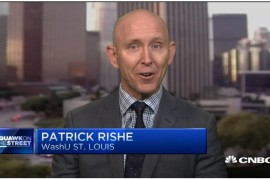This blog post was originally published on Forbes.com
Patrick Riche is Director of the Business of Sports Program at Olin.
“As a Microeconomics professor, one of the topics covered is a discussion of the “utility” (or satisfaction) which consumers derive from their various purchasing decisions.
Invariably, one of the universal truths in the study of economics is the law of Simply defined, this law suggests that the additional satisfaction we obtain from consuming the next unit of some good or service (i.e. marginal utility) will eventually decline as we consume more and more of the same good/service.
…Going back to late October, Sports Illustrated reported that Monday Night Football was down 24% from 2015, Sunday Night Football was down 19% and Thursday night was down 18%.
But to this economist, there is no question that diminishing marginal utility has to play a significant role as well.With games on Thursday, Sunday, and Monday night, and with games all day Sunday, is it possible that we’ve reached a tipping point in just how much NFL football we can consume?”
Link to article: 2016 NFL TV Ratings Decline: Has Diminishing Marginal Utility Finally Set In?





 Patrick Rishe, director of Olin’s Business of Sports Program has been making the rounds on local radio, TV, and national outlets including
Patrick Rishe, director of Olin’s Business of Sports Program has been making the rounds on local radio, TV, and national outlets including 
